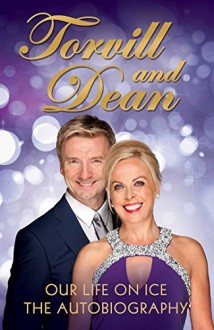
Like most memoirs of figure skaters written at peak saleability (i.e. right after an Olympics), this is a book about someone with most of their life - and possibly the most interesting part - still ahead of them. So I didn't come to "Beautiful on the Outside" with particularly high expectations, and I'd say, without being mean, that my level of expectations was met. This is the somewhat gossipy sentimental history of a young gay man negotiating the various levels of a competitive sport that requires concentrated effort for ten to twenty years (in Rippon's case, closer to twenty) in order to reach - or possibly not reach - the prize of an Olympic medal.
The difference between this memoir and, as a good point of comparison, Brian Orser's "Orser: A Skater's Life" (1988) are largely the differences between society in general 30 years ago and now. Orser's "autobiography" is heavily filtered through a co-writer's authorial voice. His public persona (as it existed at the time, through the press and television) was similarly heavily controlled, and certainly - by general consent - did not include revelations about his sexuality, let alone any youthful indiscretions such as drinking or drug use. While both books feed into the notion of the skater as a marketable commodity, Rippon's marketability is based upon the candour (some would say the excessive candour) of the world of social media in which he exists as a personality far beyond his actual accomplishments as a competitive skater. Far from being considered a drawback, his status as the "first openly gay athlete" to compete for the US in the Olympics is a selling-point for Rippon. His public twitter spat with notoriously homophobic Vice-President Pence just before the 2018 Olympics only fed into that particular identification of Rippon as the [sassy] gay one, an identification he doesn't particularly seem to mind.
Rippon's voice here is almost certainly pretty much entirely his own. He sets the tone (and probably alienates a generation or two of readers) by dropping his first f-bomb on the first page. He withholds (in a half-hearted sort of way, easily circumvented by Google) the names of a few people about whom he has uncomplimentary things to say, such as Nikolai Morosov, his first major-league coach. His story is far less the "I entered competition X, placed 2nd, and then dealt with injury" formula of the memoirs of Orser's generation, and includes far more of the "I spent several weeks sulking in bed (or partying, or refusing to work with coach Y)" of, say, Johnny Weir's generation of memoir. Not that there aren't competition results and nasty injuries chronicled here - it's just that they're not the entire narrative. This makes for a more interesting read, though I doubt very much whether the life itself was more interesting.
Despite his public life, Rippon appears to be still fairly much enwrapped in a celebrity bubble of sorts; and it's entirely possible he'll make a career out of that. If he does find a path to more interesting, if somewhat more low-profile things (as Orser has done, becoming a truly world-class coach), I hope that he ends up writing about that too. He can even leave in the f-bombs, if he feels he has to!

 Log in with Facebook
Log in with Facebook 









